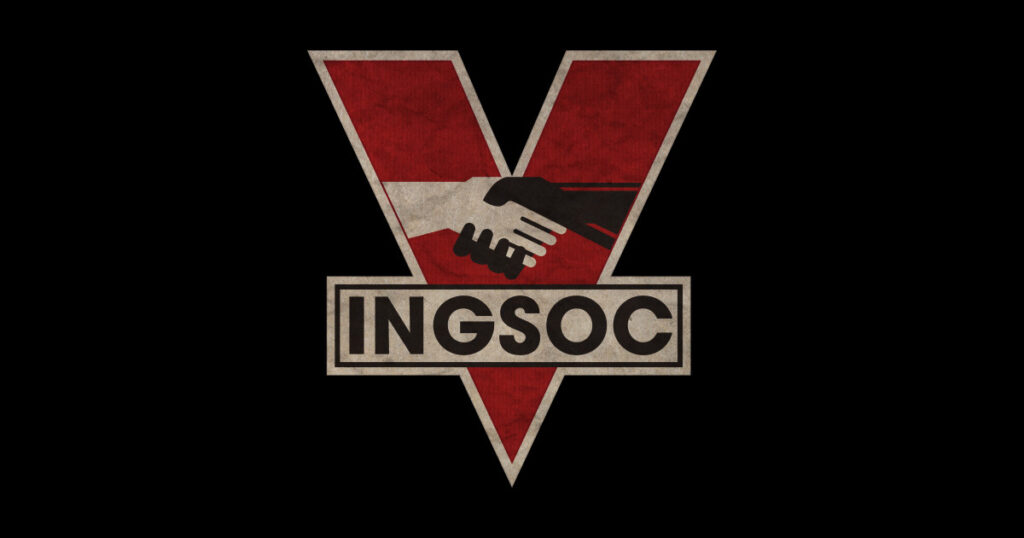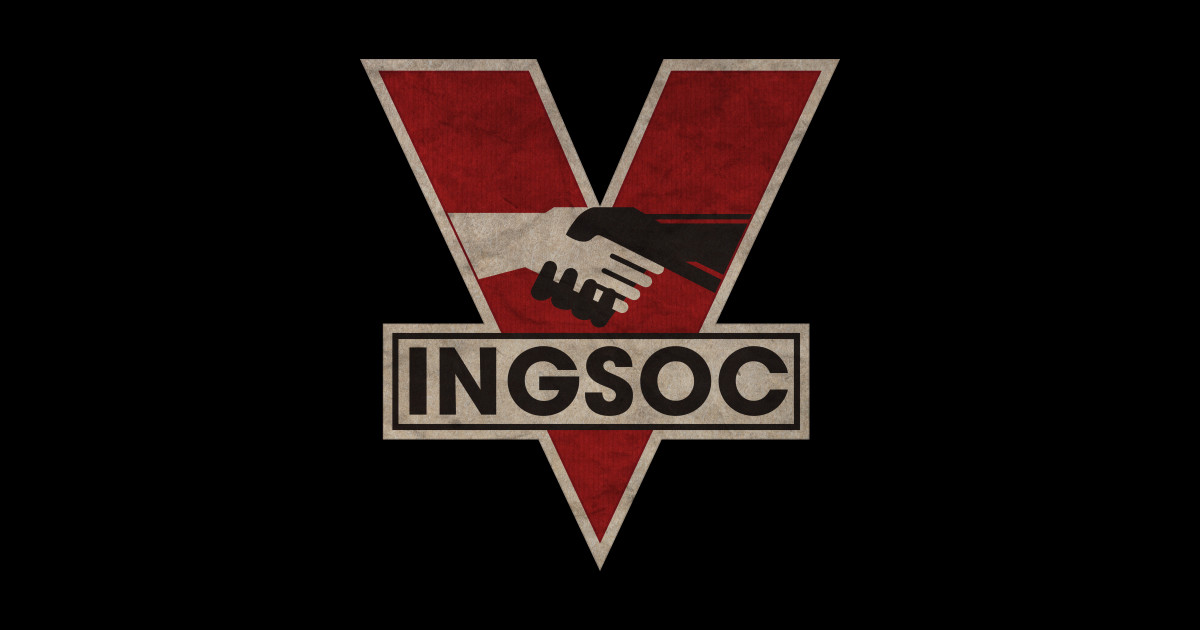
Unpacking Ingsoc Meaning: A Deep Dive into Orwell’s Vision
The term “Ingsoc” resonates with a chilling familiarity, even for those unfamiliar with George Orwell’s dystopian masterpiece, Nineteen Eighty-Four. But what exactly *is* Ingsoc meaning? Beyond a simple definition, it represents a complex and terrifying ideology, a warning about the dangers of totalitarian control. This article provides a comprehensive exploration of Ingsoc, delving into its core tenets, its implications, and its enduring relevance in the 21st century. We aim to provide a definitive resource on Ingsoc, drawing on expert interpretations and offering a nuanced understanding of its power and its peril.
Ingsoc Defined: The Principles of English Socialism
Ingsoc, short for English Socialism, is the dominant political ideology of Oceania, the totalitarian superstate depicted in Nineteen Eighty-Four. It’s not merely a political system; it’s a complete worldview designed to maintain the Party’s absolute power. Understanding Ingsoc meaning requires dissecting its core principles:
- Collectivism: Individual identity is suppressed in favor of the collective. “I” is replaced by “We.” Individual thought and action are subservient to the Party’s goals.
- Totalitarianism: The Party exerts absolute control over every aspect of life, from thoughts and emotions to actions and relationships. There is no separation between public and private life.
- Psychological Manipulation: The Party uses propaganda, surveillance, and thought control techniques to manipulate the population’s beliefs and perceptions. This includes the creation of Newspeak, a language designed to limit thought.
- Historical Revisionism: The Party constantly rewrites history to suit its current needs, erasing inconvenient truths and fabricating events to maintain its narrative. As the Party slogan states, “Who controls the past controls the future: who controls the present controls the past.”
- Perpetual War: Oceania is perpetually at war, not for territorial gain, but to maintain a state of fear and to justify the Party’s oppressive policies. War is peace.
- Doublethink: The ability to hold two contradictory beliefs simultaneously and accept both of them. This is a crucial element of Ingsoc’s control, allowing individuals to accept the Party’s lies and inconsistencies without question.
Ingsoc is not about achieving a socialist utopia. It’s a perversion of socialist ideals, used as a tool for absolute power. The Party’s primary goal is not the well-being of the population, but its own survival and perpetuation.
The Inner Workings: How Ingsoc Maintains Control
The Party’s control is maintained through a multi-layered system of surveillance, propaganda, and psychological manipulation. Consider these key aspects:
- The Thought Police: This omnipresent force monitors citizens for any signs of independent thought or dissent. Even facial expressions and body language are scrutinized.
- Telescreens: These devices are present in every home and public space, constantly broadcasting propaganda and monitoring citizens’ activities.
- Newspeak: This artificial language is designed to reduce the range of thought by eliminating words and simplifying grammar. The goal is to make “thoughtcrime” – any thought that contradicts the Party’s ideology – literally impossible.
- The Ministry of Truth: This ministry is responsible for rewriting history and disseminating propaganda. It constantly alters records to align with the Party’s current narrative.
- The Ministry of Love: This ministry is responsible for torturing and re-educating those who are deemed to be enemies of the Party. Its goal is to break individuals down and force them to accept Ingsoc’s ideology.
The Party’s control is not just physical; it’s also psychological. By manipulating language, history, and the very fabric of reality, the Party creates a world in which independent thought is almost impossible.
The Human Cost: The Impact of Ingsoc on Individuals
Ingsoc’s oppressive policies have a devastating impact on individuals. The constant surveillance, propaganda, and thought control techniques erode their sense of self, their ability to think critically, and their capacity for love and connection. The consequences are dire:
- Loss of Individuality: Citizens are reduced to cogs in the machine, their individual identities subsumed by the collective. They are expected to conform to the Party’s dictates in every aspect of their lives.
- Fear and Paranoia: The constant threat of surveillance and punishment creates a climate of fear and paranoia. Citizens are afraid to speak their minds or express their true feelings.
- Emotional Repression: The Party discourages emotional expression, viewing it as a threat to its control. Love, compassion, and empathy are suppressed.
- Moral Decay: The Party’s lies and manipulations erode moral principles. Citizens become cynical and disillusioned.
- Psychological Trauma: Those who are caught and tortured by the Ministry of Love suffer severe psychological trauma, often resulting in permanent mental damage.
Winston Smith, the protagonist of Nineteen Eighty-Four, embodies the human cost of Ingsoc. His struggle to maintain his individuality and his love for Julia are ultimately crushed by the Party’s overwhelming power.
Newspeak: The Language of Control
Newspeak is not just a simplified version of English; it’s a tool of control. Its purpose is to limit thought by reducing the number of words and simplifying grammar. Here’s how it works:
- Elimination of Synonyms and Antonyms: Newspeak aims to eliminate words that express subtle shades of meaning or contradictory ideas. This makes it more difficult to think critically or express nuanced opinions.
- Creation of Compound Words: Newspeak creates compound words that express complex ideas in a simplified form. This makes it easier to manipulate people’s beliefs.
- Reversal of Meaning: Newspeak sometimes reverses the meaning of words to promote the Party’s ideology. For example, “good” becomes “ungood,” and “bad” becomes “doubleplusungood.”
By controlling language, the Party controls thought. Newspeak is a powerful weapon in its arsenal of oppression.
Doublethink: Embracing Contradiction
Doublethink is the ability to hold two contradictory beliefs simultaneously and accept both of them. It’s a crucial element of Ingsoc’s control, allowing individuals to accept the Party’s lies and inconsistencies without question. Doublethink requires a high degree of mental discipline and a willingness to suppress one’s own critical thinking abilities. It’s a form of self-deception that allows individuals to function within the totalitarian system without questioning its legitimacy.
The Parallels to Modern Society: Is Ingsoc Still Relevant?
While Nineteen Eighty-Four is a work of fiction, its themes resonate with many aspects of modern society. The rise of surveillance technologies, the spread of misinformation, and the increasing polarization of political discourse raise concerns about the potential for totalitarian control. While no society perfectly mirrors Oceania, the novel serves as a cautionary tale about the dangers of unchecked power and the importance of protecting individual freedoms. Recent trends in online censorship and the manipulation of social media algorithms echo some of the concerns raised in Orwell’s novel.
The Enduring Legacy: Why Ingsoc Still Matters
Ingsoc remains a potent symbol of totalitarianism and a warning about the dangers of unchecked power. It serves as a reminder of the importance of critical thinking, individual freedom, and the protection of democratic values. The novel’s enduring popularity speaks to its relevance in an era of increasing political polarization, technological surveillance, and the spread of misinformation. Nineteen Eighty-Four is not just a novel; it’s a call to action, urging us to be vigilant against the forces that threaten our freedom and autonomy. The meaning of Ingsoc is a lesson we must never forget.
Understanding Ingsoc: Frequently Asked Questions
Here are some frequently asked questions to further clarify the meaning and implications of Ingsoc:
- What is the difference between Ingsoc and traditional socialism? Ingsoc is a perversion of socialist ideals, used as a tool for totalitarian control. Traditional socialism aims to promote social justice and economic equality, while Ingsoc prioritizes the Party’s power above all else.
- How does Newspeak contribute to Ingsoc’s control? Newspeak limits thought by reducing the number of words and simplifying grammar, making it more difficult to express independent or dissenting opinions.
- What is the role of the Thought Police in Oceania? The Thought Police monitor citizens for any signs of independent thought or dissent, creating a climate of fear and paranoia.
- What is the significance of the Ministry of Truth? The Ministry of Truth rewrites history and disseminates propaganda, controlling the narrative and shaping public opinion.
- How does doublethink work? Doublethink allows individuals to hold two contradictory beliefs simultaneously and accept both of them, enabling them to accept the Party’s lies and inconsistencies without question.
- Is Ingsoc a purely fictional concept? While Ingsoc is a fictional concept, it reflects real-world tendencies towards totalitarianism and the abuse of power.
- What are some real-world examples of Ingsoc-like tactics? Examples include propaganda, censorship, surveillance, and the manipulation of information.
- How can we prevent the rise of Ingsoc-like societies? By protecting individual freedoms, promoting critical thinking, and resisting the spread of misinformation.
- What is the ultimate goal of the Party in Nineteen Eighty-Four? The Party’s ultimate goal is to maintain its own power and perpetuate its rule indefinitely.
- Why is Nineteen Eighty-Four still relevant today? Because it serves as a cautionary tale about the dangers of unchecked power and the importance of protecting individual freedoms in an era of increasing political polarization and technological surveillance.
The Fight for Truth and Freedom
Understanding Ingsoc meaning is more than just understanding a fictional ideology; it’s about recognizing the potential for totalitarianism in any society. By understanding the tactics used by the Party in Nineteen Eighty-Four, we can be more vigilant against similar tendencies in our own world. The fight for truth and freedom is an ongoing one, and it requires constant vigilance and a commitment to critical thinking. Share your thoughts and experiences with Orwell’s chilling vision in the comments below. Let’s keep the discussion alive and ensure that the lessons of Ingsoc are never forgotten.

